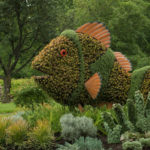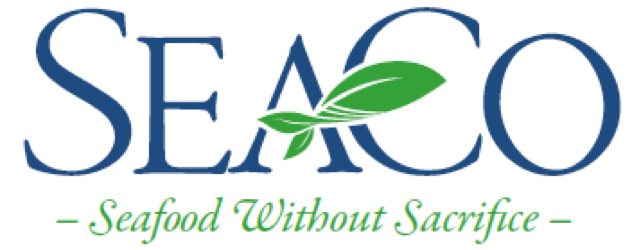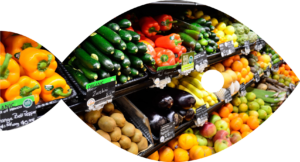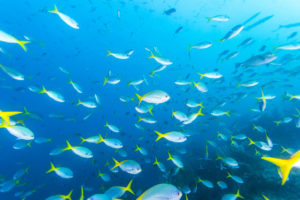
Kickoff Date: Thursday, February 23rd 4:30pm to 6:00pm.
The Challenge:
According to the World Wildlife Fund, “More than 85 percent of the world's fisheries have been pushed to or beyond their biological limits and are in need of strict management plans to restore them. Several important commercial fish populations (such as Atlantic bluefin tuna) have declined to the point where their survival as a species is threatened.” Further, WWF says, “For centuries, our seas and oceans have been considered a limitless bounty of food. However, increasing fishing efforts, over the last 50 years as well as unsustainable fishing practices, are pushing many fish stocks to the point of collapse.”
Additionally, mercury content (and other heavy metals) in fish is a known public health problem, and while farmed fish is known to have lower levels of mercury, fish farming comes with a host of other problems including sea lice, lower nutritional value, and concentrations of fish waste in our oceans.
With the problems of overfishing and fish farming reaching crisis levels, demand for plant-based fish products is on the rise. However, better and more affordable plant-based seafood products are needed to provide delicious and convenient alternatives to wild-caught and farmed fish.
In this Plant-Based Seafood Collider, students will uncover the components of flavor, texture, and aromatics that make fish a valued food for so many people. Students will work with experts in food chemistry and proteins to understand ‘what makes fish taste, smell, and cook like fish.” This key information will enable food chemists and chefs to seek out plant-based proteins that can replicate fish taste and texture. The students will collaborate with experts to collect this key information on fish flavor and texture and propose methods for finding plant-based versions of these characteristics. Students will investigate sensor technology, from similar tools to mass spectrometry to analyze flavor profiles, to textures sensors for use in replicating the delicate texture of fish. Using the information from their research into fish characteristics, and their new knowledge of sensors for deciphering this characteristic information, students will propose an R&D plan to find the most promising plant-based proteins and flavor and analysis tools to help create the next generation of sustainable, plant-based fish.
This Innovation Challenge is the first of its kind effort at a University level Worldwide to develop urgently needed innovative solutions. This Collider allows you to become a protagonist in this emerging and highly relevant world problem.
Outcomes:
Students will investigate and document the key biochemical and textural aspects of carp, tilapia, salmon, shrimp, and catfish (which represent a variety of seafood textures). Students will use this information to propose an R&D plan for replicating fish flavor and texture using the most sophisticated sensor technologies and analyzers (both in and out of the food industry) which will help major plant-based foods companies find potential proteins, aromatic compounds, and textures from plants to meet the demand for plant-based fish.
Sponsors

This Collider Project is generously sponsored by SeaCo
SeaCo is a partnership of BeyondBrands and New Crop Capital committed to utilizing innovation and commerce to solve our oceans’ issues.
$5K in prizes for the winning teams.
Advisors
Good Food Institute
The Good Food Institute works with scientists, investors, and entrepreneurs to make groundbreaking good food a reality. We focus on clean meat and plant-based alternatives to animal products - foods that are more delicious, safer to eat and better for the planet than their outdated counterparts.
Who Should Apply?
Graduate and undergraduate students in Biotechnology, Nutrition, Chemical Engineering, Biology, Biochemistry, Material Sciences, and Electrical Engineering are encouraged to apply. Also anyone with a demonstrated interest or experience in plan-based proteins substitutes.
Please send your resume/cv with a statement of interest (one file) to scet.collider@berkeley.edu. Write – Plant-Based Seafood – in the subject line. The deadline to apply is Friday, February 17th.
To participate you must attend the kickoff session on Thursday, February 23rd 4:30pm to 6pm at the SCET offices in the Memorial Stadium.
Students can take the Collider for 2 units of credit:
INDENG 190C Special Topics: Innovation Collider
Class # 27359
Graded or Pass/No Pass



